Worldlog Marianne Thieme 7 Novembro 2017
No meu último Worldlog, mencionei brevemente o fato de que o novo governo holandês havia apresentado seus planos sob a forma de um acordo de coalizão. Na semana passada, um debate sobre esses planos ocorreu no Parlamento holandês. Na prática, os planos significam que as gerações futuras terão que resolver os desafios das mudanças climáticas. Por exemplo, o gabinete holandês prometeu fechar cinco usinas de energia a carvão, mas um prazo para o fechamento será estabelecido após 2023 – no qual também será após o término do mandato do atual governo. Além disso, o gabinete em grande parte transfere a responsabilidade para a falha do mercado. Para este gabinete, a auto-regulamentação é a solução definitiva. Durante a crise financeira e no verão passado, no entanto, vimos mais uma vez como essa auto-regulamentação leva a situações perigosas.
Adiar e esquivar-se da responsabilidade pelo futuro do nosso planeta.
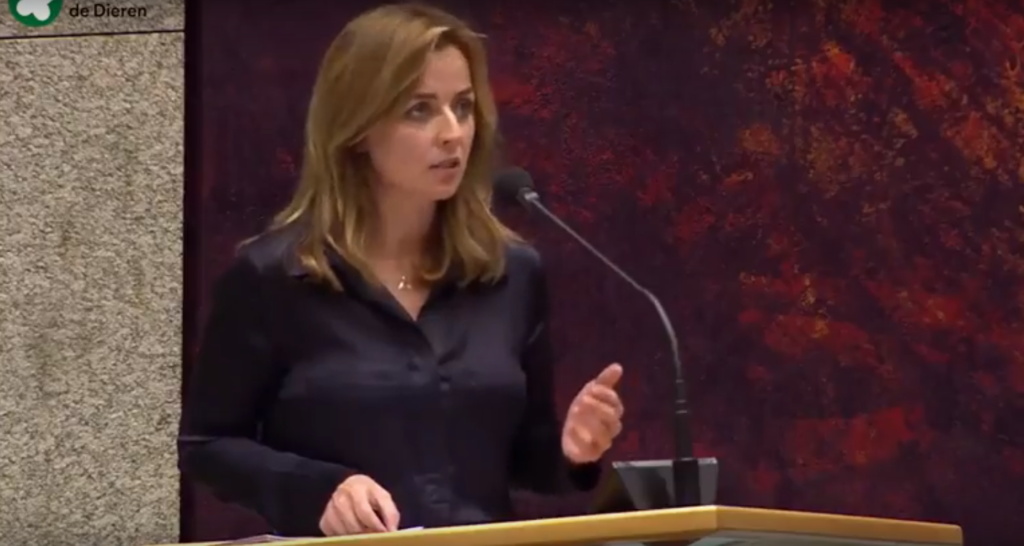
Marianne Thieme a debater acordo de coalizão no Parlamento holandês
A Agência de Avaliação Ambiental da Holanda (sigla em holandês – PBL), a autoridade do governo holandês para análise de políticas estratégicas nos campos do meio ambiente, da natureza e do planejamento territorial, calculou o acordo de coalizão e chegou à mesma conclusão: o gabinete está a adiar as decisões. Isso, apesar do fato de que, de acordo com cientistas climáticos como Bert Metz, precisamos tomar todas as medidas possíveis contra as mudanças climáticas nos próximos cinco anos para permanecer dentro do objetivo de 1,5 graus – o que significa, dentro do atual governo prazo.
Nosso novo gabinete nem sequer cumpre metade dos objetivos climáticos acordados em Paris. E, para piorar as coisas, nosso Ministro dos Assuntos Econômicos também é nosso Ministro do Meio Ambiente. O mesmo que ter um ministro para dietas que também é responsável por doces de chocolate, como a comediante holandesa Claudia de Breij colocou tão eloqüentemente. O mesmo ministro nem tem consciência do fato de que a Holanda está atrasada em relação à praticamente todos os países europeus no que se refere às políticas ambientais. Isso definitivamente não inspira nenhuma confiança.
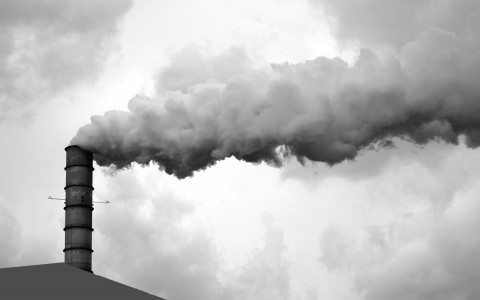
Como uma “solução” para o problema climático, o gabinete quer introduzir um sistema de armazenamento subterrâneo de CO2. Um plano fóssil de outra era, nascido de ideologias desatualizadas. É inviável, custará uma quantidade desnecessária de energia, e será à custa de painéis solares e turbinas eólicas – pois será pago com subsídios destinados à estimulação de energia sustentável. O PBL indicou que são necessárias muitas outras medidas, como uma diminuição da pecuária e uma redução no consumo de carne e produtos lácteos. No entanto, isso requer mudanças no comportamento dos cidadãos, empresas e governos, o que parece não ser negociável para este gabinete.
Enquanto isso, a Holanda continua a ser um paraíso fiscal – um estado de bem-estar para as multinacionais. Enquanto os cidadãos holandeses têm de pagar uma soma substancialmente maior para todas as necessidades diárias devido ao aumento de impostos, a indústria obtém as regalias graças a este gabinete. O Partido para os Animais acredita que um ambiente de negócios favorável na Holanda deve ser alcançado através da redução da tributação na mão-de-obra e não na tributação de dividendos. Optar por pequenas e médias e por inovação ao invés de multinacionais.
Para atingir nossos objetivos climáticos e de economia circular, precisamos de um modelo econômico diferente baseado em um conceito amplo de prosperidade. A economista britânica Kate Raworth tem algumas idéias fortes sobre esse assunto e demonstra com a chamada “economia de donuts” que, em um planeta finito com recursos finitos, o crescimento infinito é impossível e irresponsável. Clique aqui para assistir Raworth no TEDx a explicar sua visão de uma maneira fácil e compreensível.
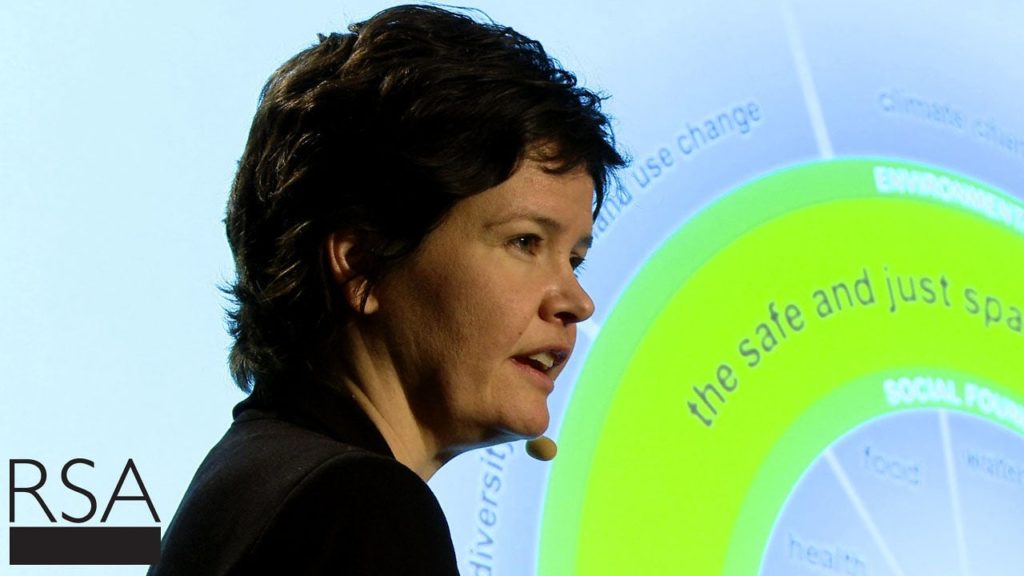
Economista Kate Raworth
Não é sobre o que podemos pagar, mas o que podemos arcar. As condições para a nossa existência estão ameaçadas. Estamos no meio de uma catastrófica crise de biodiversidade, com conseqüências desastrosas em uma escala sem precedentes para populações de insetos e espécies de aves. Em zonas naturais na Alemanha, 75% de todos os insetos desapareceram. A causa: terras agrícolas que são pulverizadas com toxinas, como neonicotinoides e Roundup. A Holanda é um dos três países com maior uso de toxinas no mundo.
A vida no Mar do Norte diminuiu um terço. A indústria pecuária está a emitir grandes quantidades de amônia, literalmente a acidificar e a envenenar as áreas ao redor. Na Holanda, não resta mais de 15% da biodiversidade original. E o nosso novo gabinete protege o setor pecuário e pesqueiro.
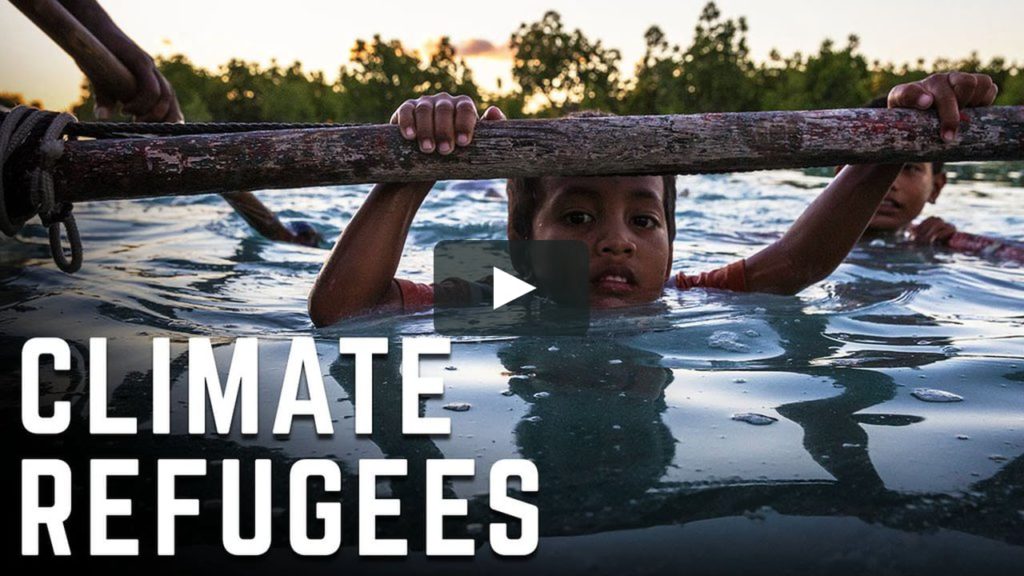
Refugiados Climáticos
Além disso, um artigo da ‘The Lancet’ mostrou que as mudanças climáticas fizeram com que ao menos um mil milhões de refugiados fossem obrigados a deixarem de suas casas. Na África e no Oriente Médio, por exemplo, as pessoas são expulsas de seus países por conflitos sobre os recursos naturais. Em vez de falar sobre o fechamento de nossas fronteiras, devemos lidar com as causas da migração. O descarregamento de nossos produtos agrícolas baratos está a causar o colapso de mercados internos nos países em desenvolvimento. A Holanda precisa revisar sua estratégia de exportação agressiva para dar aos agricultores locais uma chance. Nosso primeiro-ministro aplaude o setor agrícola holandês, ao mesmo tempo em que as Nações Unidas estão a soar o alarme deste mesmo setor: estamos a esgotar os recursos naturais do planeta Terra.
O Partido para os Animais quer uma mudança radical na política: dar prioridade ao planeta em vez dos interesses a curto prazo do homem ocidental.
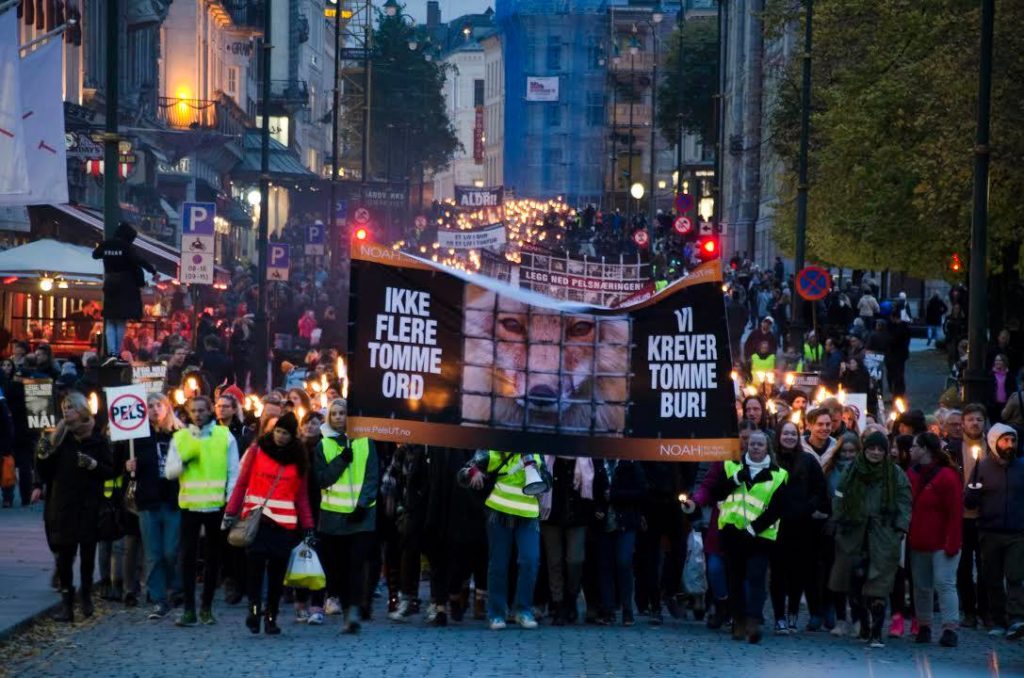
Março contra o cultivo de peles na Noruega
Antes do debate, fui à Noruega para dar uma palestra sobre o nosso partido e sobre alimentação sustentável e benévola para com os animais na Universidade de Oslo. Além disso, discuti a maior marcha da Europa contra o cultivo de peles, que contou com a presença de milhares de pessoas. Surpreendente! Meu discurso foi em inglês e você pode ouví-lo aqui.
Nosso novo governo pode ter muito medo de tentar, mas Nova York não: o prefeito da cidade anunciou o lançamento de um projeto piloto de segunda-feira sem carne, como uma forma de enfrentar os problemas das mudanças climáticas e a obesidade. Isso significa que às segundas, nenhuma carne será servida. Um forte exemplo para o resto do mundo!
Até a próxima vez!
Marianne
In my last Worldlog, I briefly mentioned the fact that the Netherlands’ new government had presented their plans in the form of a coalition agreement. Last week, a debate on these plans took place in the Dutch Lower House. In practice, the plans mean that future generations are going to have to solve the challenges of climate change. For example, the Dutch cabinet has promised to close down five coal-fired power plants, but a timeframe for this will be set after 2023 – which is also after this government’s term of office. Furthermore, the cabinet mostly transfers its responsibility to market failure. For this cabinet, self-regulation is the ultimate solution. During the financial crisis and last summer, however, we have seen yet again how this self-regulation leads to unsafe situations.
Postponing and shirking responsibility for the future of our planet.

Marianne Thieme debating coalition agreement in Lower House
The Netherlands Environmental Assessment Agency (PBL), a Dutch government authority for strategic policy analysis in the fields of the environment, nature and spatial planning, calculated the coalition agreement and came to the same conclusion: the cabinet is mainly postponing. This in spite of the fact that according to climate scientists such as Bert Metz, we will need to take all possible measures against climate change in the coming five years in order to stay within the 1.5-degree target – that means, within the current government term.
Our new cabinet does not even meet half the agreed Paris climate targets. And to make matters worse, our Minister for Economic Affairs is also our Minister for Climate. A bit like having a minister for diets who is also in charge of chocolate candy, as Dutch comedian Claudia de Breij so eloquently put it. That same minister is not even aware of the fact that the Netherlands lags behind virtually every other European country in its climate policy. That does not inspire much confidence.

As a “solution” to the climate problem, the cabinet wants to introduce a system of underground CO2 storage. A fossil plan from another era, born from outdated ideologies. It is unfeasible, will cost an unnecessary amount of energy, and will be at the expense of solar panels and wind turbines – as it will be paid for with subsidies intended for the stimulation of sustainable energy. PBL has indicated that many more measures are needed, such as a decrease in livestock population, and a reduction in the consumption of meat and dairy products. However, that requires changes in the behaviour of citizens, companies and governments, which seems non-negotiable for this cabinet.
In the meantime, the Netherlands remains a tax haven – a welfare state for multinationals. While Dutch citizens have to pay a substantial higher sum for all everyday necessities due to the rise in VAT, the industry gets the jackpot thanks to this cabinet. The Party for the Animals believes a favourable business climate in the Netherlands should be achieved by reducing labour taxation rather than dividend taxation. Opt for SMEs and innovation rather than multinationals.
In order to meet our climate and circular economy targets, we need a different economic model based on a broad concept of prosperity. British economist Kate Raworth has some strong ideas on this subject and demonstrates with her so-called ‘doughnut economics’ that on a finite planet with finite resources, infinite growth is impossible and irresponsible. Click here to watch Raworth at TEDx explain her vision in an accessible manner.

Economist Kate Raworth
It is not about what we can pay, but what we can afford. The conditions for our existence are threatened. We are in the midst of a catastrophic biodiversity crisis, with disastrous consequences of an unprecedented scale for insect populations and bird species. In natural sites in Germany, 75% of all insects have disappeared. The cause: agricultural lands that are liberally sprayed with toxins such as neonicotinoids and Roundup. The Netherlands is among the three countries with the highest use of toxins in the world.
Life in the North Sea has decreased by one third. The livestock industry is emitting vast amounts of ammonia, literally acidifying and poisoning the surrounding areas. In the Netherlands, no more than 15% of the original biodiversity remains. And our new cabinet is protecting both livestock and fishing industry.

Climate refugees
On top of that, an article from The Lancet has shown that climate change has brought one billion refugees to move away from their homes. In Africa and the Middle East for example, people are driven from their countries by conflicts over natural resources. Instead of talking about closing our borders, we should be dealing with the causes of migration. The dumping of our cheap agricultural products is causing local markets in developing countries to collapse. The Netherlands needs to revise its aggressive export strategy in order to give local farmers a chance. Our prime minister applauds the Dutch agricultural sector, while at the same time, the United Nations is sounding the alarm bell on that very sector: we are depleting the earth’s resources.
The Party for the Animals wants a radical change of policy: giving priority to the planet instead of the short-term interests of Western man.

March against fur farming in Norway
Before the debate, I went to Norway to give a lecture on our party and sustainable and animal friendly food at the University of Oslo. In addition, I discussed Europe’s largest march against fur farming, which was attended by thousands of people. Amazing! My speech was in English and you can listen to it here.
Our new government might be too afraid to try, New York is not: the city’s mayor has announced the launch of a Meatless Monday pilot programme, as a way of tackling climate change and obesity. That means that on Mondays, no meat will be served. A strong example for the rest of the world!
Until next time!
Marianne